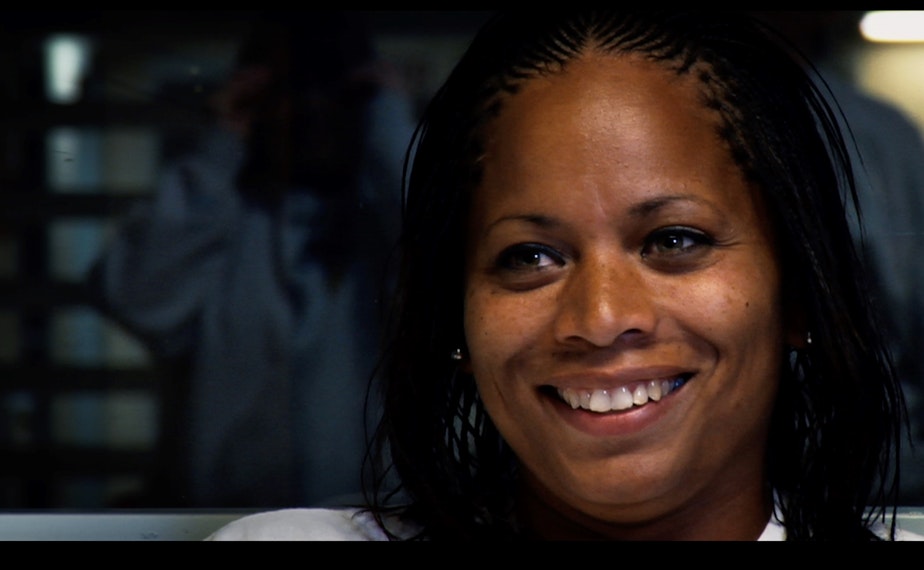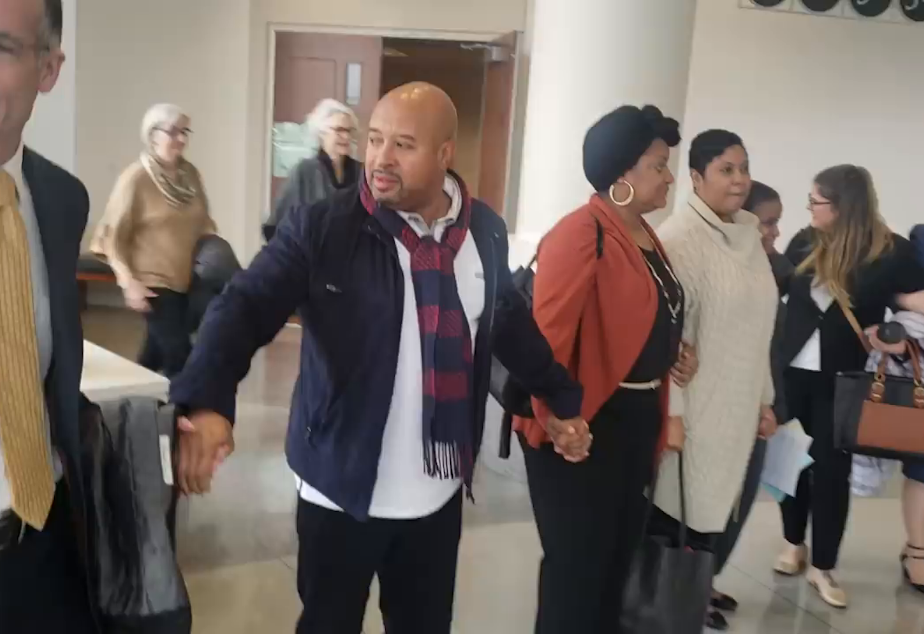King County prosecutors help cut 'breathtaking' prison sentence

In January, King County prosecutors asked a judge to reduce a woman's 40-year prison sentence that she received in the '90s, calling it shocking and excessive. She’s due to be released from prison this week.
In February, prosecutors also asked a judge to set aside a conviction for a man who confessed to murder at age 16. He’s been released after 23 years in prison.
The King County Prosecutor’s deputy chief of staff Carla Lee said her office is committed to reexamining older cases with long prison sentences in light of newer court rulings and research.
“Those cases have led us to start taking this more seriously and wanting to be more proactive versus reactive,” she said.
Nevertheless, Lee said her office needs more resources to review these cases, and that victims and their families can often feel betrayed by these efforts.
“It is very difficult to manage some of the tensions,” Lee said. “We really want to make sure that victims are a part of this process.”
Sponsored
A
few years ago, the King County Prosecuting Attorney's Office received a clemency petition from a prisoner at the Washington Corrections Center for Women in Gig Harbor, according to King County Prosecutor Dan Satterberg. It was from Andrea Harding-Altheimer, who was sentenced to nearly 40 years in prison for shooting and wounding her ex-boyfriend in 1999 after she found him with another woman. He was left with hearing loss and a five-inch scar on his neck, according to the Seattle Times. Altheimer was additionally convicted of assaulting the woman.
The sentence she received was longer than a murder sentence.
“It was a breathtakingly long sentence at the end of the day, and not something we would seek today,” Satterberg said. “She should have been punished but nobody died, it was not a homicide."
Altheimer's clemency petition described her transformation in prison. She had started programs for women to mentor one another, seek job training and contemplate the impact of their actions on their victims. Other prisoners attested to Altheimer’s positive influence and impact on their lives.
Sponsored
“She has been a bright light,” said her stepbrother, Dominique Davis. “As she was in there, she turned into the mom inside the facility.”
Meanwhile, prosecutors began reexamining Altheimer’s sentence. Lee said they determined that under a 2014 state Supreme Court ruling, one of the charges against Altheimer was extraneous and could constitute double jeopardy, since multiple acts should constitute just one "assault."
Prosecutors surprised Altheimer’s lawyer by saying they would support a new, reduced sentence for her. In an emotional court hearing last January, a judge approved the sentence, setting the stage for Altheimer to be released March 27.
Sitting in the courtroom at the resentencing hearing, Carla Lee said she was struck by the ways the justice system and Altheimer’s community were working together.
“I was hearing tears, I was hearing people just saying ‘thank you’ and just appreciative of the process and appreciative of her growth,” Lee said. “But also saddened by the events that had taken place those 21 years ago.”
Sponsored
Davis, Altheimer's stepbrother, was there, too. “The atmosphere in the courtroom was very electrifying, very strong,” he said. “I’m kind of religious so it’s like the presence of the Holy Spirit was in the room, it was powerful.”

 28 secs
Altheimer's family and community members celebrated her resentencing at the Maleng Justice Center in Kent in February 2019.
28 secs
Altheimer's family and community members celebrated her resentencing at the Maleng Justice Center in Kent in February 2019.
Davis founded Community Passageways, a felony diversion program for youth and young adults. He plans to hire Altheimer as a “community ambassador” to keep mentoring young women once she’s released. Paul Holland, Altheimer's attorney, said Altheimer also wants to start “an organization that would work on behalf of, and with children of, people who are incarcerated.”
The man Altheimer shot forgave her. But Lee said the woman Altheimer assaulted opposed her release.
Sponsored
“Her second victim was not supportive, and had very strong feelings,” Lee said.
That woman, Antoinette Eaton, had been Altheimer’s best friend before their confrontation. She said in a letter to the court that if Altheimer were released, “it would be like living the incident all over again every day.” She didn’t respond to a request for comment.
Davis said the real question is what promotes healing after a crime. For a long time, he says, the answer was punishment.
“Locking somebody away for 35, 44 years, does that heal anything?" Davis asked. "Has that fixed anything?” he said.
Carla Lee said prosecutors are also seeing the limitations of that approach. “We want to find ways to restore past harms, too," she said. "We are more enlightened about some of the past harms and we’re evolving as an office."
Sponsored
I
an Simmers was 16 when he confessed to stabbing Rodney Gochenour on the Burke-Gilman trail in the 1990s. Simmers served 23 years in prison. But last month King County prosecutors agreed to let him go.In the time that Ian Simmers has been in prison, new research has suggested that false confessions are more likely among youth.
“The conviction of Mr. Simmers was based exclusively on a confession and the testimony of a cellmate in the jail who he said confessed to him," prosecutor Carla Carlstrom explained to the judge.
Prosecutor Mark Larson said when Simmers filed a motion seeking a new trial, prosecutors looked unsuccessfully for fresh evidence in the case to confirm or dispute the guilty verdict.
“We’re not going to willy-nilly undo old cases,” Larson said. "But we want to be thoughtful and willing to sort of check our work. And I think the Simmers case falls into that category.”
So prosecutors filed a motion to vacate Simmers’ conviction. While they do not believe Simmers “is innocent of the crime, or that he was wrongly convicted," they decided to vacate it because Simmers has already served 23 years and is seeking a new trial. Given the difficulty in retrying the case, Simmers' age when charged and the time he's already served, they said "a new trial would not be in the interests of justice.”
Judge Patrick Oishi approved the motion to vacate Simmers' conviction in February, and Simmers apologized to the victim’s family.
“I’m sorry to the victim’s family that these proceedings reawaken their grief,” he said.
Gochanour’s niece, Corey Sem, said this decision seems to leave her uncle’s murder unsolved.
“I just want justice for my uncle,” she told the court. “He only got to live 35 years. And whoever killed my uncle gets to continue on living.”
At the hearing, Judge Oishi called this a difficult case because of the violence of the act. But he added, “things really have changed in the past few decades, the way the court system, the justice system looks at evidence, particularly with juveniles.”




